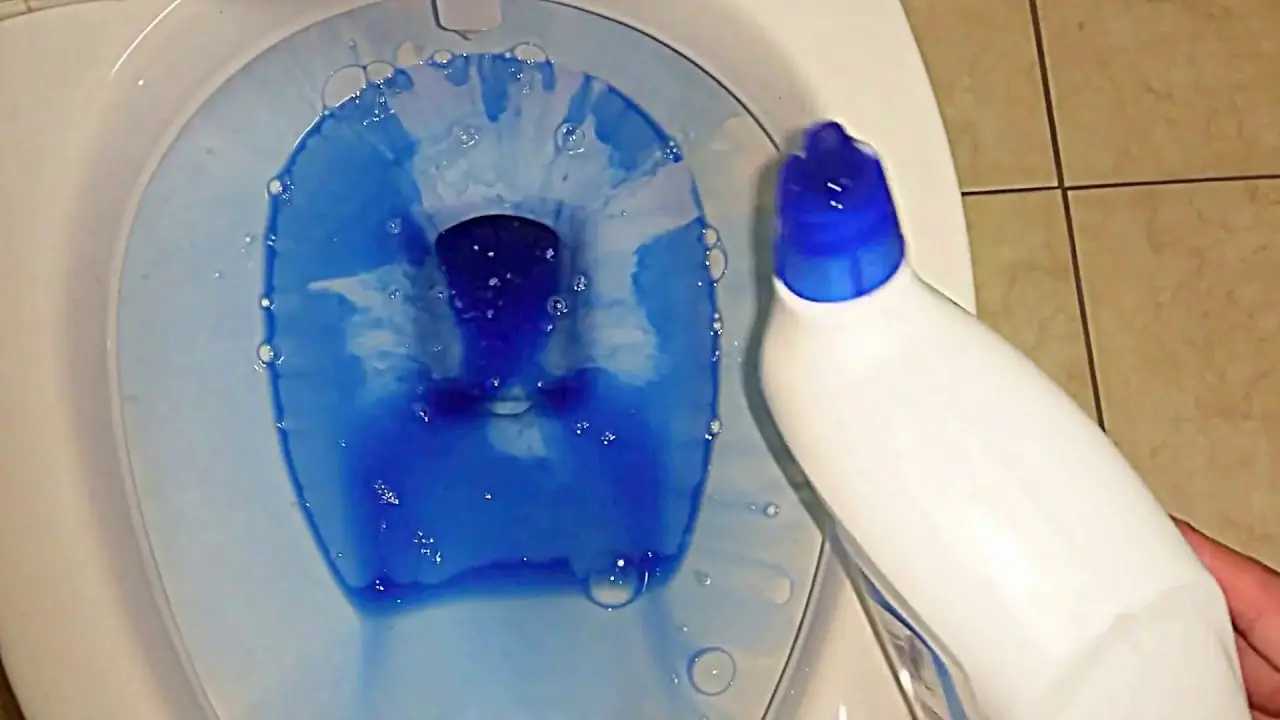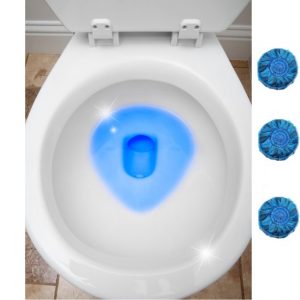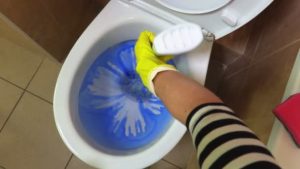Is Lysol Toilet Bowl Cleaner Safe for Septic Systems?

Everyone needs to clean their toilet. However, if you have a septic system, you need to worry if your cleaner will damage your septic system. You wonder, will my Lysol Toilet Bowl Cleaner hurt my septic system?
In short, no, Lysol Toilet Bowl Cleaner will not hurt your septic system. However, this is assuming you follow the directions. Some varieties contain powerful acids and should be avoided, but occasional use should cause no harm.
 Lysol Toilet bowl cleaner contains many chemicals that claim to clean and disinfect your toilet bowls. All toilet bowl cleaners kill bacteria, which is a problem when it comes to septic systems. Additionally, some have acids that can damage metal pipes as well.
Lysol Toilet bowl cleaner contains many chemicals that claim to clean and disinfect your toilet bowls. All toilet bowl cleaners kill bacteria, which is a problem when it comes to septic systems. Additionally, some have acids that can damage metal pipes as well.
However, if you use it in small amounts, it should be alright. A good rule of thumb is only to use it monthly. This usage allows bacteria populations to return to normal in a few days.
A septic system consists of pipes that direct wastewater to a septic tank that processes the water. Generally, these tanks consist of concrete, fiberglass, or plastic. Pipes inside the septic tank then carry the liquid up and release it in a drainage field.
Septic systems require bacteria to process waste. However, whenever people use some household cleaners, the cleaner’s chemicals may kill the bacteria needed for processing.
Avoid cleaners that contain harsh chemicals. Namely, these chemicals can kill the necessary bacteria in your septic system. Thus, this may require you to have your system pumped too often, which may be costly.
Experts disagree on what toilet cleaners are safe. Although some major brand name cleaners mark their products as safe for septic systems, many people claim only natural cleaners are safe.
Namely, most major brand toilet cleaners contain harsh chemicals. You should not use these cleaners too often or you may hurt your septic system. On the other hand, natural cleaners do not contain harsh chemicals. However, they may not clean as effectively or efficiently.
These are safe for septic systems, but only when used correctly.
These cleaners are safe for septic systems but may take a little work.
Two primary sources trigger corrosion and damage to the system’s natural bacteria. These are listed below:
The piping in your septic system is susceptible to metal corrosion, and this can clog your lines. Moreover, it can also cause leaks, forcing costly repairs.
Acid is one of the biggest causes of damage to household pipes.
Product makers commonly use strong acids in cleaners and clog removers. However, when it remains in contact with your metal pipes, it can cause serious damage. There are many safe ways to unclog a toilet.
Your septic system is home to good bacteria breaking down the solid waste in your septic tank. Accordingly, this process is always occurring. But it’s not enough to prevent large buildup on the bottom of your tank.
If chemicals disrupt this bacteria, solid material does not get digested and converted into a liquid. This process leads to a quicker buildup of waste and more frequent pumping.
 Products containing chlorine bleach or ammonia are not safe for septic systems. Furthermore, many experts suggest avoiding using harsh cleaners if you have a septic system.
Products containing chlorine bleach or ammonia are not safe for septic systems. Furthermore, many experts suggest avoiding using harsh cleaners if you have a septic system.
Although, some harsh toilet bowl cleaners get marked as septic-safe; this is typical because of the small amount used. So, the chemicals in it are still unsafe for your septic system. It’s just probably not going to be used in large enough quantities to damage your septic system.
Lysol toilet cleaner may be safe for septic systems, but it is toxic. Specifically, chemicals in Lysol toilet bowl cleaner include acids and strong cleaners. Thus, these can damage skin and be lethal to ingest.
Typically, essential oils are safe for septic systems. Tea tree oil, pine oil, and many other essential oils are septic systems safe. Also, when combined with white vinegar, essential oils such as lavender or lemon make effective, nice smelling toilet cleaners.
Lysol Toilet Bowl Cleaner is a good formula for intensive cleaning of your toilet bowl, whether you have a septic system or not. However, to avoid having your septic system pumped anymore than you need to, try to keep from using it to often.
For regular cleaning, try to use strong chemical-free cleaners that will leave your toilet clean and your septic system working efficiently.